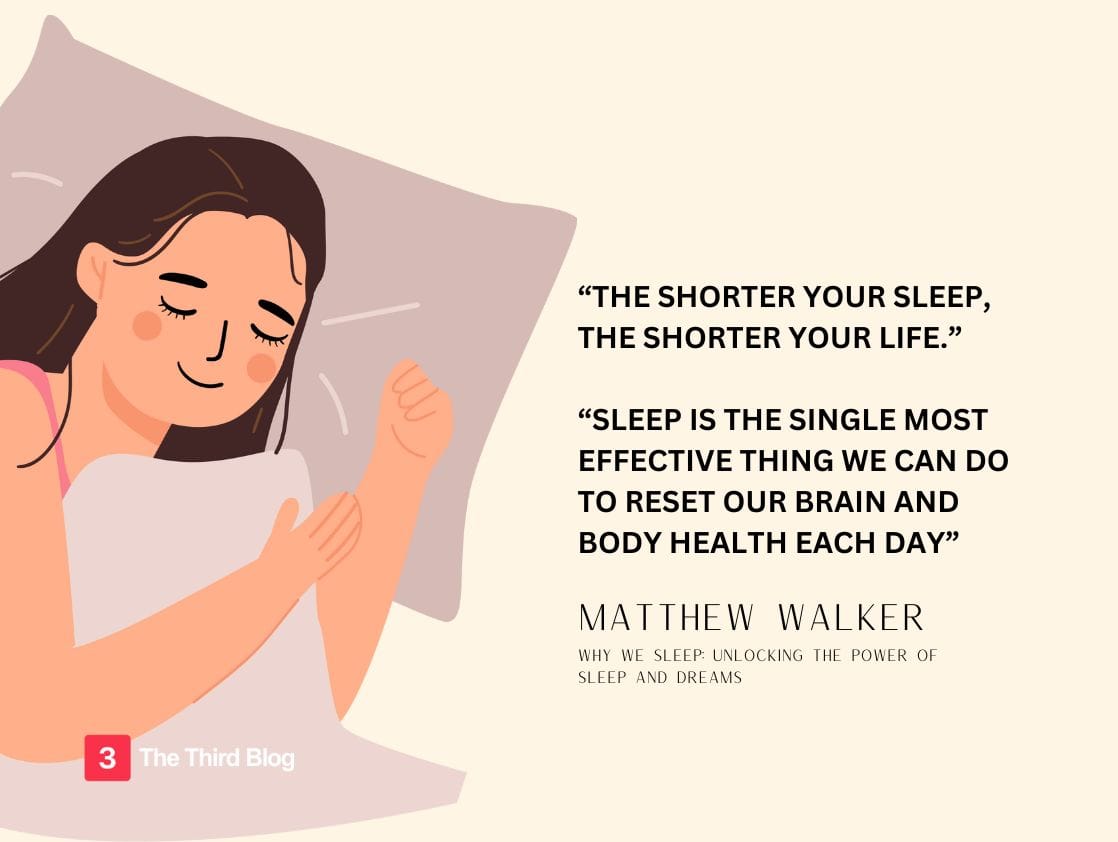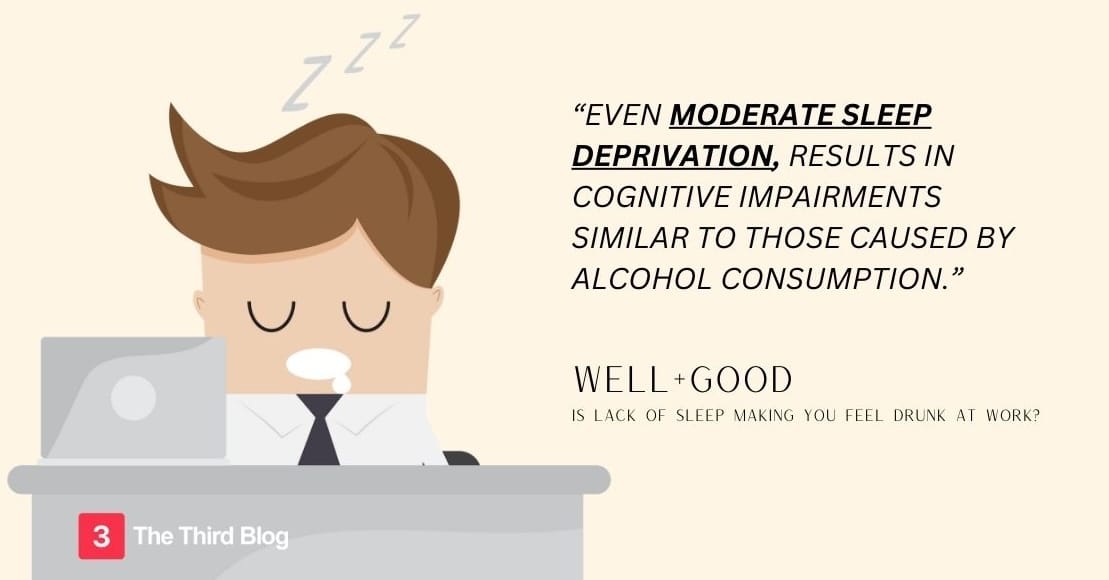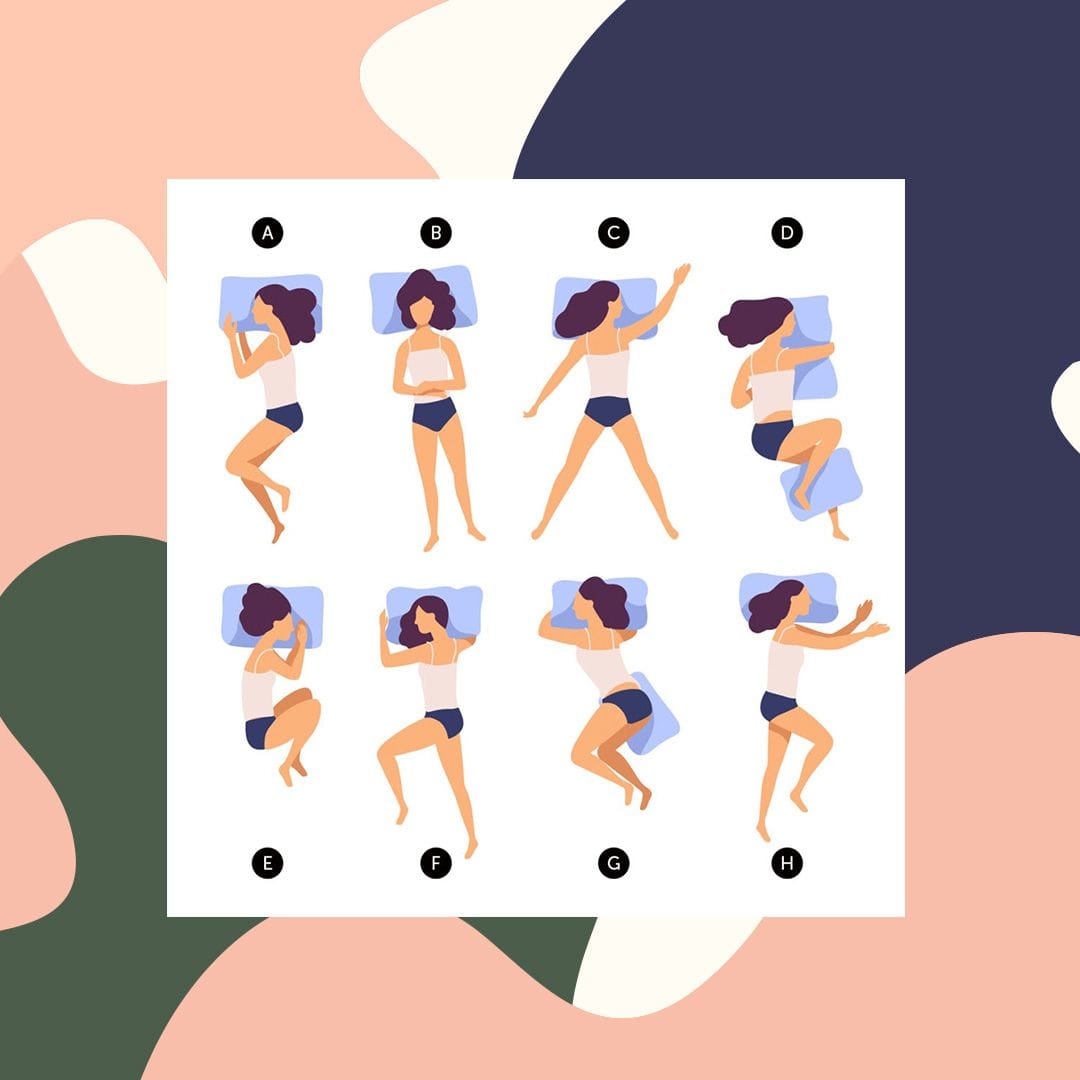“Sleep is the greatest legal performance enhancing drug that most people are neglecting in sport... if you’re getting 6 hours of sleep or less, your time to physical exhaustion drops by up to 30%” - @sleepdiplomat
Sleep, elusive to some, yet essential, can be simplified and mastered using the Simplexity approach. Just as the method effectively tackles procrastination, it can equally transform your sleep routine. There are countless things you can a do to ensure quality sleep every night, but I believe you can start simple - a consistent schedule.

Everything is better after a good night sleep. You'll feel like a superhero. After a rough night, the day is always harder, Why do that to yourself?
Isn’t it weird that we commit the same self destructive behaviors hundreds or even thousands of times in a lifetime? Even when we know they shorten our life, accelerate disease and aging, cloud our judgement and make us feel miserable. - Brian Johnson
The benefits of healthy sleep
This article isn't about the benefits but I wanted to mention a few. The studies are endless and it helps with stress reduction, improved cognitive abilities, stronger immune system, lowers health risks, etc, etc. Read this, this or this for more info.
The Simplexity Approach
Put in a 'simplex' way - I believe a consistent schedule will do the most for your sleep habits - and I've tried it all. It will regulate your circadian rhythm, secure a certain amount of hours and allow your body to heal.
A bit of background to me. (My Sleep History)
I'm not gifted with the luxury of sleep.
Over the past 15 years I have tried almost everything to sleep well and everyday it's a challenge. I've tried the evening/ morning routines, meditation, intermittent fasting, blackout curtains, binaural beats, temperature control. A lot!
In the past, during my triathlon days, the only way I could sleep well was if I was exhausted from training. Otherwise I'll be up at night with a racing mind. I'd be in the gym at 11PM pushing myself to the limit so once I got home I would literally collapse.
The best solution I found in the last 12 months was a whoop band - as it basically told me when to go to sleep for 100% sleep quality...but I soon found out how to game this system and I lost interest.
I wake up consistently through the night, then spend the majority of the day bio-hacking my body to recuperate the rest and stay healthy.
Thankfully, the last year, things have got better. I still do things to impact my schedule that I know I shouldn't ...and I'm still awake non-stop THINKING some nights, but overall it's generally better.
Even though I'm still working on consistently myself, I believe when I take this seriously it has the most profound effect.
Like many things, you just need to stick to it. That's the hard part. Take note of Brian Johnson and stop self-destructive habits. It's better for everyone.

Consequences of poor sleep
The significance of adequate sleep cannot be overstated, especially when considering its impact on work performance. Research has drawn parallels between sleep deprivation and the effects of alcohol consumption, highlighting the serious consequences of inadequate rest.
- Impact on Work Performance: Harvard Medical School research indicates that the average American has lost about an hour and a half of sleep per night in recent decades. This loss of sleep has a substantial impact on workplace productivity and health, with insomnia alone costing an estimated $63 billion a year due to associated health and productivity issues.
- Cognitive Impairments: According to a study covered by ScienceAlert, lack of sleep leads to significant weakening in the brain's signaling network. This deterioration can cause memory lapses and concentration difficulties, similar to the effects of alcohol consumption. The study found that sleep deprivation dampens brain cell activity, causing slower neuron response, weaker firing, and prolonged transmission, akin to the mental state of a drunk driver.
- Moderate Sleep Deprivation and Alcohol Comparison: Well+Good highlights that even moderate sleep deprivation, defined as getting less than seven hours of sleep per night, results in cognitive impairments similar to those caused by alcohol consumption. This state is not ideal for tasks requiring quick thinking or fast reactions. However, problem-solving tasks that require more effort and reasoning seem less affected by sleep deprivation.
I don't know about you - but I don't want to work drunk.
How to implement sleep simplexity & set a consistent schedule?
- Understand Your Sleep Pattern: Begin by acknowledging your current sleep habits. Identify what works and what doesn't. If you have a 'normal' job but go to bed past midnight everyday - you're sleep deprived. Find out how much sleep you need. Start with 9 hours and see how you feel.
- Set Small, Achievable Goals: As consistent sleep is the aim, start with minor adjustments. For instance, going to bed 15 minutes earlier than usual. If you need 9 hours of sleep, you need to be in bed around 9.5 hours before you wake up.
- Create a Relaxing Bedtime Routine: Simplify your pre-sleep activities. For me, I read, chat to my wife, clean the house a bit and listen to some 'sleep music' about an hour before bed. I also try to avoid any digital stimulation and intense exercise. (Although depending on my activity throughout the day, I will occasionally do some light, full body stretches)
- Track and Adjust: Keep a sleep diary or go digital. Note what improves your sleep and what hinders it. Adjust your routines accordingly. I mentioned Whoop before, but any sleep tracking device will do; Apple Watch, Fitbit, smart mattress etc. (I've gone full circle and no longer track my sleep as I became obsessed with gamifying my metrics but this is extreme and won't happen to everyone)
- Stay Consistent Yet Flexible: Aim for consistency but be adaptable. Life events might require adjustments to your sleep schedule. Don't beat yourself up about it But return to norm as soon as you can. If possible, stick to your schedule on weekends and you won’t feel the need to sleep in and ‘catchup’ on lost rest.
- Seek Simplicity in Your Environment: Create a sleep-conducive environment. This can be as simple as dimming lights or reducing noise. Removing bedroom distractions and leaving your phone in another room. Don't overcomplicate and learn to catch yourself when breaking the rules.
Enhancing Sleep with Simplexity: Expanded Strategies
As you know, this series is focused on the SIMPLE steps you can take to achieve results often clouded in complexity. If you do nothing else, I believe a consistent schedule will do the most for your mind and body - but there are also a host of other things you can try. If you want to take it to the ’next‘ level, you may consider some of the below. Regardless…and as a small disclaimer - just listen to your body.
If you’re tired. Go to sleep.
- Temperature Control: Maintain a cool, comfortable temperature in your bedroom. Experiment to find the ideal temperature for your best sleep. (I use EIGHT SLEEP but it's expensive. It helped eliminate night sweats and keeps my body cold - which I love)
- BLUE Light & Screen Time Reduction: Limit exposure to screens at least an hour before bed. The blue light from screens can disrupt your natural sleep cycle. (You may consider a dumb-phone after a certain hour or adjust your bulbs for a warmer light) Blue light blockers have also been debunked. It’s an easy trend to jump on but - don’t waste your time or money with it.
- Sound & Binaural Beats: Utilize calming sounds or binaural beats to create a soothing environment conducive to sleep. I use Endel or YouTube.
- Blackout Curtains: Invest in blackout curtains to ensure your sleeping area is dark, aiding in deeper sleep. This is a great one. Your bedroom should be pitch black if possible.
- Sleeping Positions: Experiment with different sleeping positions to find the one that offers the most comfort and support for your body.
- Practice Relaxation Techniques: Techniques like meditation or deep breathing exercises can simplify the journey to sleep. Become aware of tense areas of the body. Often people will clench their jaw or have tight shoulders. I also found HUGE benefit in regular meditation to calm my racing thoughts - only problem was even after the major benefits, I stopped after 2 years.
A Variation of F works the best for me as it keeps you still. The leg up and arm below pillow or by your side stops you fidgeting or moving around.

I mentioned Brian Johnson at the start of this article. If you have the time and want to do EVERYTHING possible to make sure you get those ZZZ’z I would check out his 100% sleep score video. It might be too much for many of us, but you can’t argue with the results:
Incorporating some of these ‘advanced’ elements into your sleep routine can further enhance the quality of your sleep. This article is about sleep, but if you’re interested in general health and longevity, Brian’s blueprint protocol is a MUST read.
With sleep, there’s no need to start with it all - you’ll most likely fail.
Instead, focus on a consistent schedule and add / takeaway whatever works for you.
Good luck and sleep tight.
T3B
Disclaimer
The content provided on this blog, including all text, images, and other material, is for informational purposes only and does not constitute professional advice.
The information related to finance and health, as well as other topics, reflects my personal opinions and experiences, and is not intended as a substitute for professional consultation.
While I strive to provide accurate and up-to-date information, I am not a certified financial advisor or a healthcare professional. Therefore, any actions taken based on the content of this blog are at the reader's own risk. I encourage readers to seek professional advice before making any significant decisions related to finance, health, or any other topics covered in this blog.
Please remember that the views expressed on this blog are mine alone and do not reflect the opinions of any professional organizations or affiliations I may have.






